1. Arriving Late to Snag Prime Campsites

Many RVers have learned that rolling in after most daytime arrivals often means scoring the best spots in national and state parks. Waiting until sunset to check in can make all the difference when the campground fills quickly. Park staff have started noticing this tactic, as it sometimes leads to overbooking or unused spots in the morning. They’re starting to implement stricter arrival windows to prevent the sneaky advantage.
It’s not just about timing; arriving late can let you pick a spot with shade or proximity to water, making your stay more comfortable. Seasoned RVers use this trick during busy summer weekends, especially at parks known for their scenic drives. The late-arrival strategy has become controversial because it sometimes leaves others without options. Parks are cracking down by enforcing check-in times and preassigned sites more rigorously.
2. Using Overflow Parking Areas for Free Camping

Overflow areas at popular parks have long been a secret for RV owners looking to stretch their camping budget. These spots are technically meant for day use or emergency parking but have been used overnight by savvy travelers. Park rangers have started patrolling these areas more frequently, as overnight stays weren’t the intent. Enforcement is now becoming stricter to ensure safety and preserve the park’s natural areas.
RVers like this method because it allows them to bypass crowded main campgrounds. Some even claim they can get closer to trailheads or viewpoints this way. However, this strategy risks fines or being asked to move, making it less reliable than it once was. Many parks now clearly mark these areas off-limits for overnight stays.
3. Extending Your Stay With “Back-to-Back” Reservations
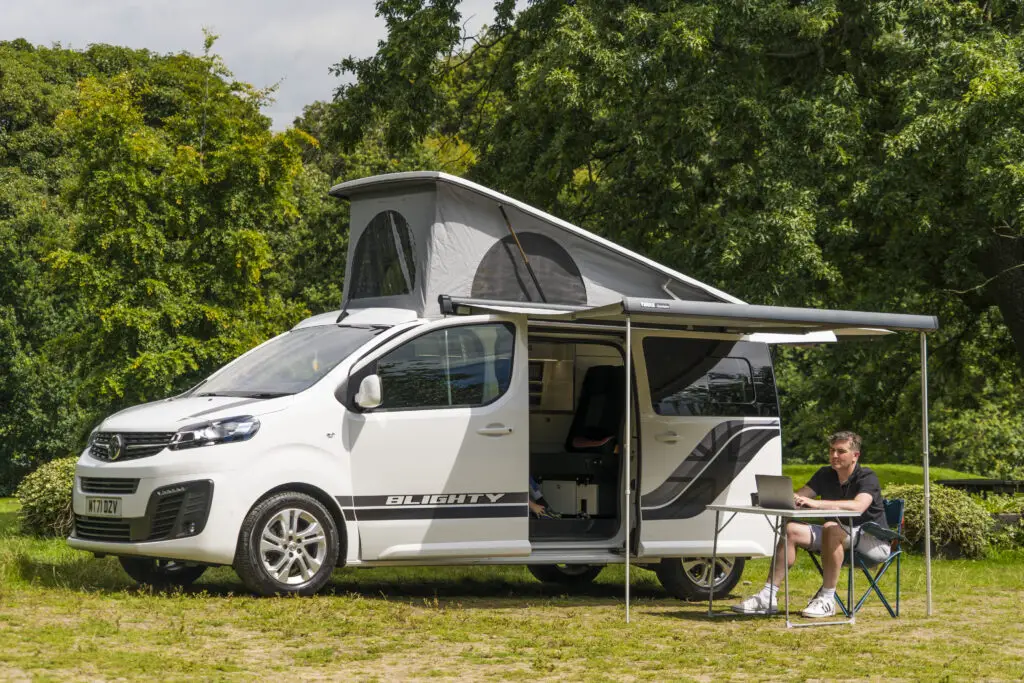
Some RV owners book consecutive reservations at different parks to create the illusion of a longer, continuous stay. By hopping from one campground to the next, they avoid the traditional time limits imposed by individual sites. Park officials are noticing patterns where RVs “loop” through the system, leading to stricter stay limits. The crackdown ensures more visitors get a chance to enjoy popular destinations without monopolization.
This hack used to be a lifesaver during peak season, especially for families on extended road trips. It allowed travelers to explore multiple parks without rushing, keeping their routines predictable. Now, software and reservation systems are better at flagging repeat or consecutive bookings. The strategy still works in less regulated areas but is risky in highly trafficked national parks.
4. Running Generators During Quiet Hours
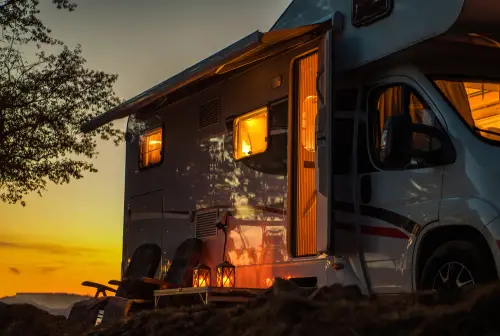
Generators keep RVers comfortable, especially in hot weather, but running them during the evening was once a subtle loophole to beat campground restrictions. Quiet hours were often loosely enforced, so some RV owners kept their machines humming to power A/C or appliances. Park officials have caught on because excessive generator use disrupts neighbors and local wildlife. Rules now strictly limit generator hours, particularly in parks with eco-sensitive areas.
The appeal is obvious: being able to cook, cool, or charge devices without interruption. For travelers in warmer climates, this can make or break a stay. Some RVers tried to mask generator noise or run them at lower output, but staff can still detect violations. Enforcement often includes fines or forced generator shutdowns, reducing the tactic’s effectiveness.
5. Hooking Into Neighboring Electrical Outlets

Creative RVers sometimes plug into a neighbor’s site to bypass electricity fees. It’s an old-school hack that technically stretches campground rules and saves money. Rangers have been warning against this increasingly as RV parks expand and electrical load safety becomes a concern. Safety violations and disputes between campers have prompted stricter monitoring of power hookups.
This trick appealed to budget-conscious travelers who didn’t want to pay extra for full hookups. Some used extension cords hidden under rugs or tents, hoping no one would notice. However, modern campgrounds monitor electrical panels more closely, and sharing without permission is now explicitly prohibited. The once-popular “neighbor plug” method is effectively off-limits in most parks.
6. Reserving Sites for Friends Then “Subletting”

RVers sometimes booked sites early to save spots for friends arriving later. This gave groups flexibility to travel together without worrying about availability. Park authorities are cracking down because these reservations block access for other campers and can be exploited commercially. Many parks now have stricter rules about the primary occupant staying onsite.
The appeal is obvious: coordinating large gatherings in popular parks is tough otherwise. Groups could essentially create a mini-campground just for themselves. But this tactic caused frustration for solo travelers or families, prompting more aggressive policy enforcement. Reservations are now monitored for occupancy, and empty sites booked in advance may be forfeited.
7. Using Personal Water Tanks to Avoid Hookups
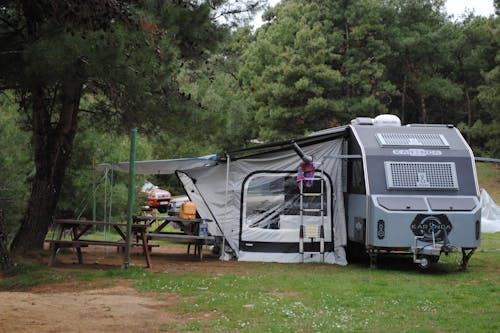
Some RVers carry extra freshwater or portable tanks to skip paying for official hookups. This tactic works especially well for parks with expensive water fees. Officials have begun emphasizing water safety and proper waste disposal, as unauthorized setups can strain infrastructure. Many parks now require proof of adequate water management for overnight stays.
It’s a cost-saver that also appeals to off-grid enthusiasts who want flexibility. Travelers can stay longer without relying on campground amenities. However, the environmental impact of improper water or waste handling is a growing concern. As a result, park staff are more vigilant about ensuring tanks and plumbing meet safety standards.
8. Sliding into “Tent-Only” Sites With Small RVs
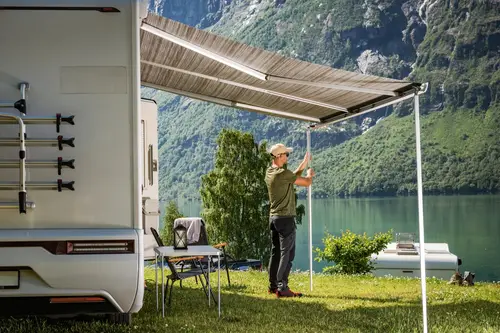
Some compact RVs or van campers sneak into tent-only areas to access prime locations. These spots are often closer to trails, water, or scenic overlooks. Rangers are now watching more closely, since small vehicles technically still occupy space meant for tents. Parks are enforcing stricter signage and fines for unauthorized vehicle use.
The reason this hack worked was simple: no one suspected a tiny camper of violating the rules. It let travelers enjoy secluded, high-demand spots without booking full RV sites. But with tighter patrols and camera monitoring, the risk of getting cited has increased. Off-grid or backcountry camping alternatives are safer and legal for those seeking privacy.
9. Overnighting in Day-Use Areas
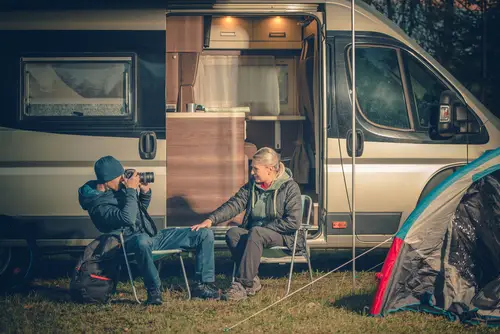
Some RVers parked overnight in picnic or day-use zones to dodge crowded campgrounds. It’s a tactic that gave early access to prime hiking or fishing locations. Park staff have noticed this happening more frequently and now enforce clear “day-use only” signage. Overnight stays in these areas are being ticketed or asked to vacate.
This hack’s charm was the convenience and direct access to amenities without campground fees. Families or groups could enjoy a quick stop without committing to a full site. Unfortunately, overuse damages grass, creates congestion, and stresses local wildlife. Parks are increasingly using volunteers and rangers to patrol these high-traffic zones.
10. Taking Advantage of Last-Minute Cancellations

Savvy RVers watch reservation systems for last-minute cancellations to score premium sites. This tactic requires patience, but the reward is often the best spot in the park. Parks are cracking down by limiting how far in advance cancellations can be booked or penalizing repeat offenders. The goal is to make site access fairer for all visitors.
RVers love this because it allows flexibility and often saves money. It’s especially popular during holidays or high-season weekends. Now, many systems hold canceled sites for a short period before reopening them to prevent “scalping.” Despite this, a well-timed monitoring routine can still pay off.
11. Pumping Greywater Into Hidden Spots
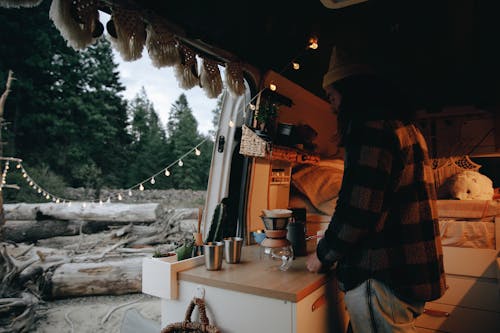
Some RV owners have historically dumped greywater into inconspicuous areas to avoid paying dump station fees. It’s technically illegal, and parks are cracking down hard because of environmental contamination risks. Rangers are using surveillance and stricter inspections to catch offenders. Violations can result in heavy fines or removal from the park.
The reason this hack persisted is simple: saving time and avoiding campground fees. Some RVers saw it as harmless, assuming it would seep into the ground unnoticed. But national and state parks are very protective of natural waterways. The crackdown ensures that wastewater is handled properly to protect ecosystems.
12. Using Multiple Reservations With Slight Name Variations
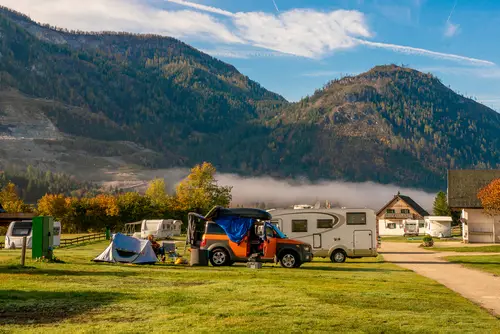
Some experienced RVers book multiple reservations under slightly different spellings or family member names to secure extra nights or sites. It’s a loophole that lets them extend stays in high-demand locations. Park management has started spotting this tactic through reservation software that flags suspicious overlaps. Many parks now cancel duplicate bookings and enforce identity verification.
The motivation was clear: maximum flexibility and access during busy seasons. Travelers could lock in sites for a whole month instead of the usual 7–14 day limit. However, repeated violations can lead to being barred from reservations altogether. Parks are tightening rules to ensure everyone gets a fair chance at coveted campsites.
This post 12 Travel Hacks RV Owners Swear By—That Parks Are Now Cracking Down On was first published on Greenhouse Black.
